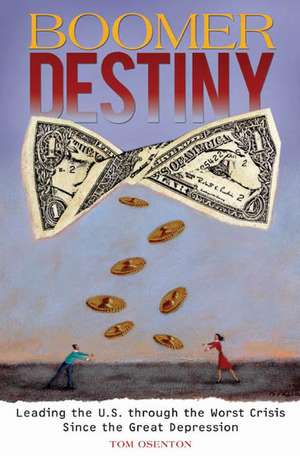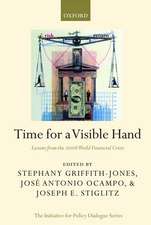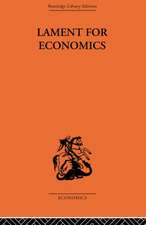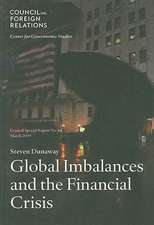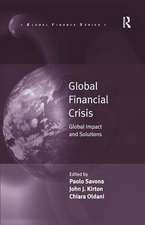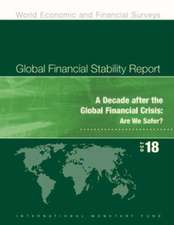Boomer Destiny: Leading the U.S. through the Worst Crisis Since the Great Depression
Autor Tom Osentonen Limba Engleză Hardback – 29 apr 2009 – vârsta până la 17 ani
Preț: 437.40 lei
Preț vechi: 604.00 lei
-28% Nou
Puncte Express: 656
Preț estimativ în valută:
83.69€ • 87.70$ • 69.19£
83.69€ • 87.70$ • 69.19£
Carte tipărită la comandă
Livrare economică 11-25 aprilie
Preluare comenzi: 021 569.72.76
Specificații
ISBN-13: 9780313356049
ISBN-10: 0313356041
Pagini: 224
Dimensiuni: 156 x 235 x 23 mm
Greutate: 0.5 kg
Ediția:New.
Editura: Bloomsbury Publishing
Colecția Praeger
Locul publicării:New York, United States
ISBN-10: 0313356041
Pagini: 224
Dimensiuni: 156 x 235 x 23 mm
Greutate: 0.5 kg
Ediția:New.
Editura: Bloomsbury Publishing
Colecția Praeger
Locul publicării:New York, United States
Notă biografică
Tom Osenton, is an adjunct professor of marketing at the University of New Hampshire's Whittemore School of Business and Economics. He is also a partner in Chicago-based market research and one-to-one marketing company Customer Share Group, Inc. Previously, he held senior-level positions at such companies as CapCities/ABC, VNU, and the Times-Mirror Company. He is the author of Customer Share Marketing: How the World's Great Marketers Unlock Profits from Customer Loyalty, and The Death of Demand: Finding Growth in a Saturated Global Economy.
Cuprins
Introduction1: A LEGACY NOT YET WRITTEN2: REPEATING CYCLES IN AMERICAN HISTORY3: THE GATHERING STORM4: BOOMER SPRING 1946 to 19645: BOOMER SUMMER 1965 to 19846: BOOMER AUTUMN 1985 to 20047: BOOMER WINTER THE NEXT AMERICAN CRISIS 2005 to 20248: THE NEW NEW DEAL9: RISING TO THE OCCASION10: THE BOOMER GRID11: BOOMERS WILL12: BOOMER LEGACY
Recenzii
The leadership role of Baby Boomers in the current economic crisis is explored by Osenton (marketing, U. of New Hampshire), who states that as the elder generation these Americans need to preserve their legacy by returning the country to a pathway of growth. Written for general audiences (and Boomers in particular), this volume first examines therepeating economic patterns that have caused such crises as the Great Depression and then provides a strategy for implementing the "New New Deal." The author also discusses the need to address the budget deficit, healthcare, immigration, education and environmental issues for future generations.
